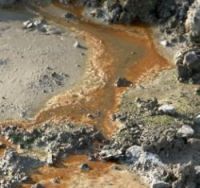

English waterways are currently being polluted with a toxic mix of oil, chemicals and bits of tyre from roads. Heavy rain forces run-off into streams and rivers.
The Environment Agency, who are responsible for monitoring water pollution in England are not regularly monitoring run-off. The Agency are said to have recognised that run-off is a "serious issue" and that it accounts for 18% of water quality failures in England, and the third most damaging source of water pollution after agriculture and sewage.
Some of the contaminants are known to damage DNA, impact the nervous system and cause cancer according to Prof Alex Ford, an expert on the impact of water pollution on aquatic organisms at the University of Portsmouth. Furthermore, he claims they can be "toxic to aquatic life and potentially contribute to the poor ecological status of some rivers,".
An example of the environmental effect of run-off is the River Lambourn in Berkshire. Its crystal clear water passes through Welford Park, home of The Great British Bake Off's white tent, before the M4 motorway where it then turns brown and murky.
National Highways has a statutory responsibility to make sure that discharges from its network do not cause pollution. It said this outfall had been assessed as "low risk" and was not in line for any mitigation measures.
National Highways is aware it has a problem and has been using a computer model to choose which outfalls to tackle. 1,236 locations that are "potentially high risk" have been found and it is expected after verification that about 250 will actually be "high risk" and need some form of mitigation.
Under its current plans only about 30 of those high-risk sites will have mitigation in place by the end of 2025. MPs are concerned with this "unacceptably slow progress".